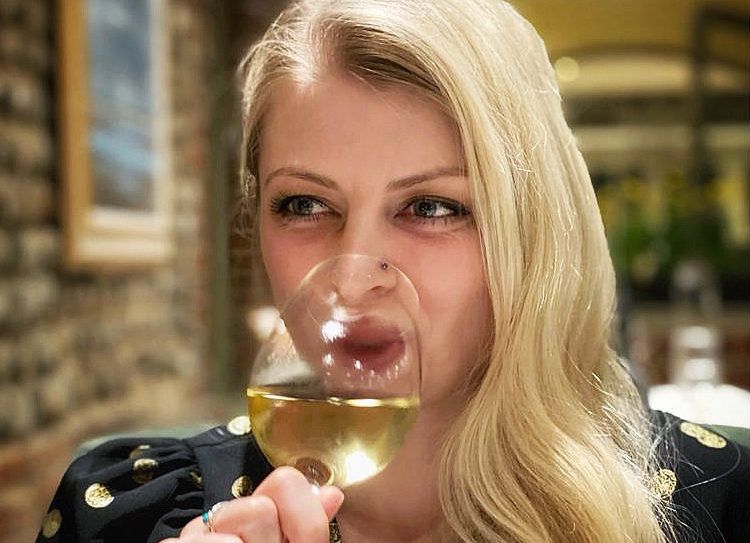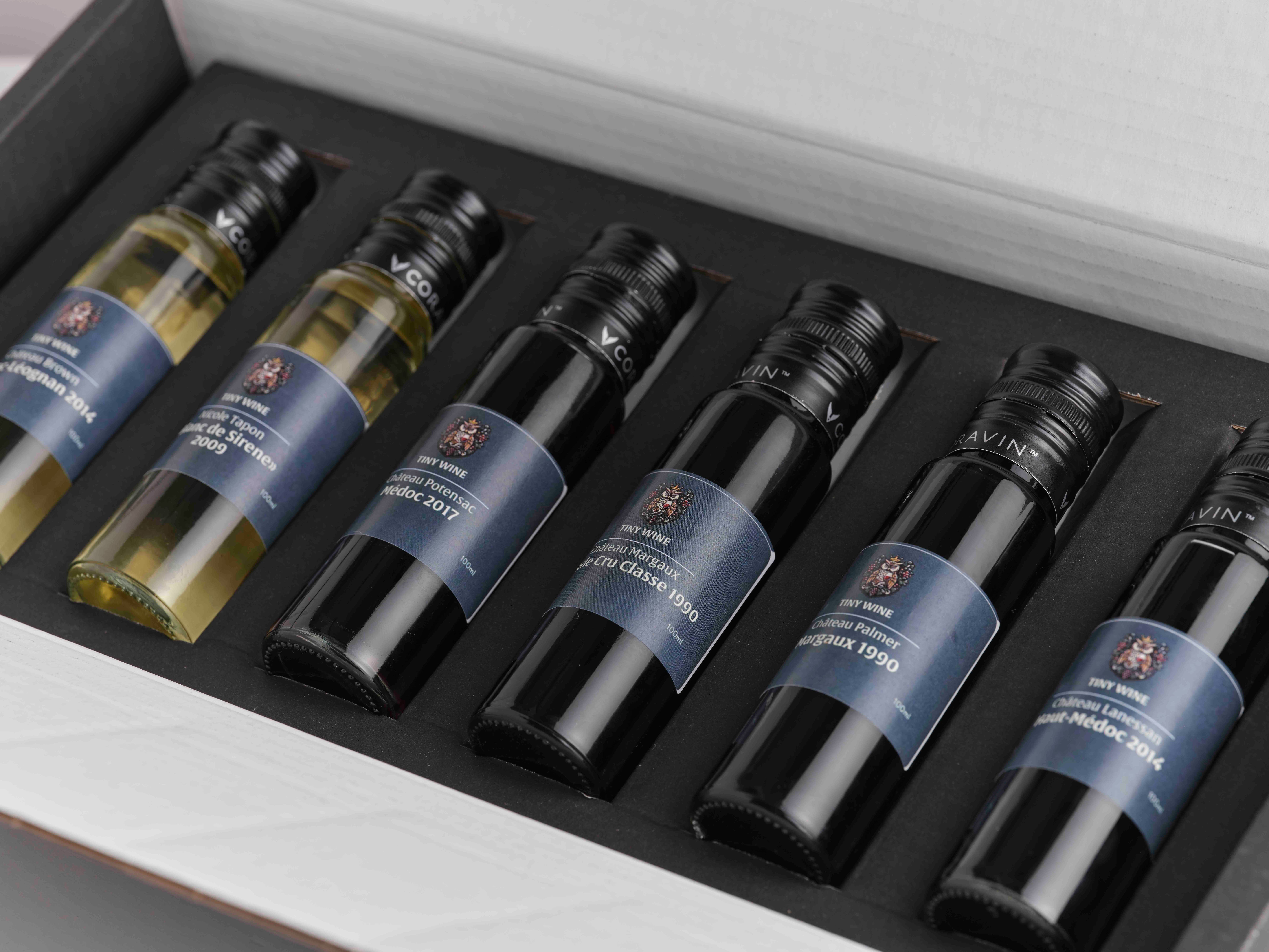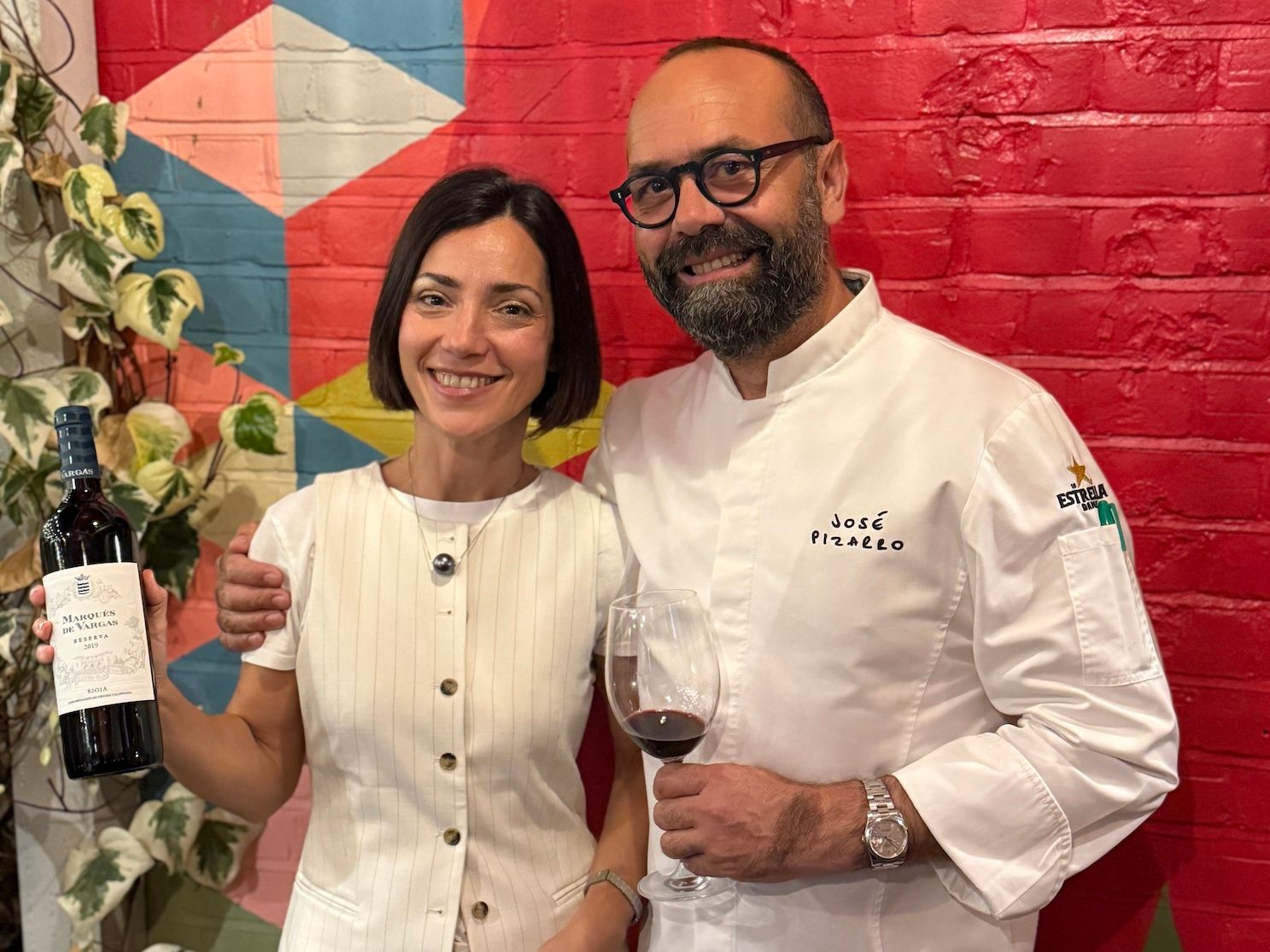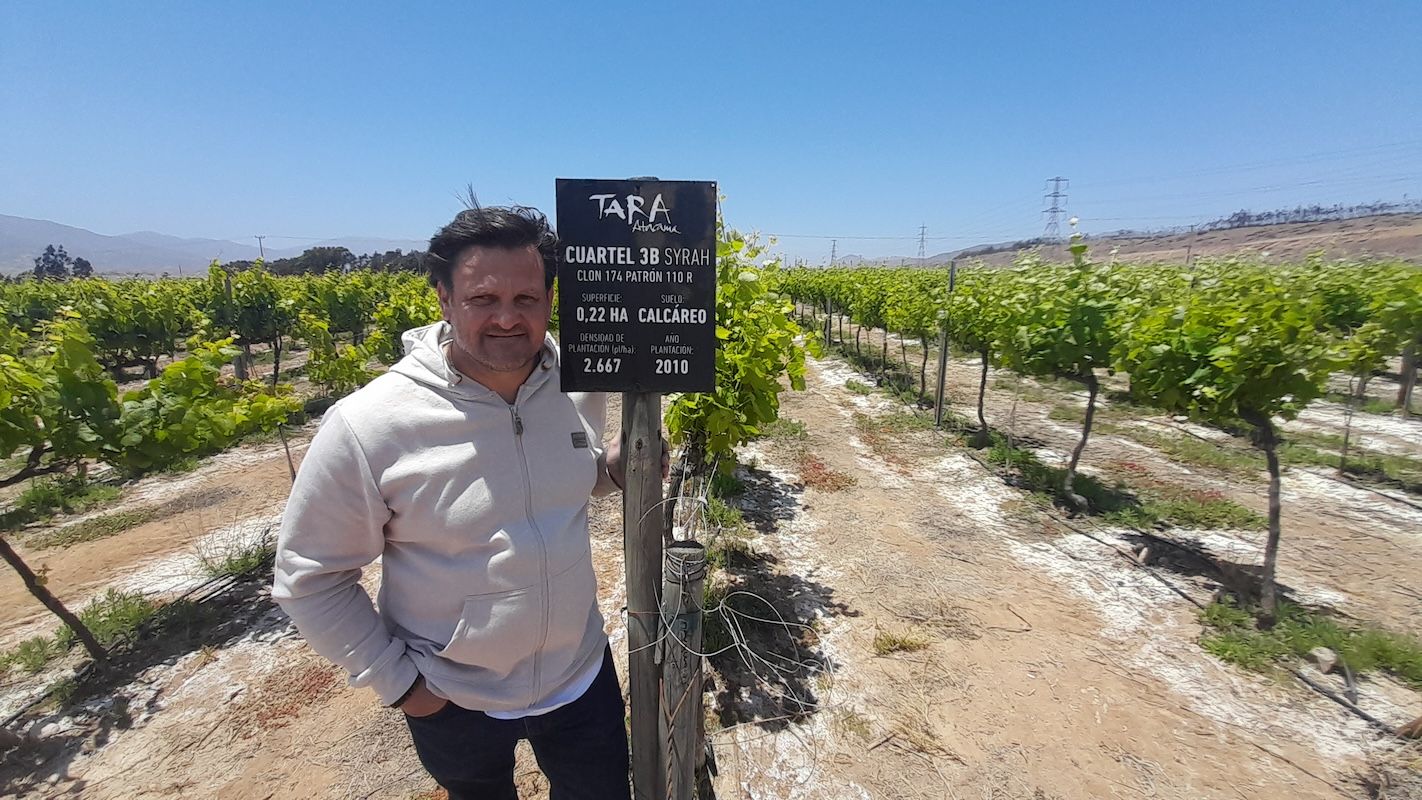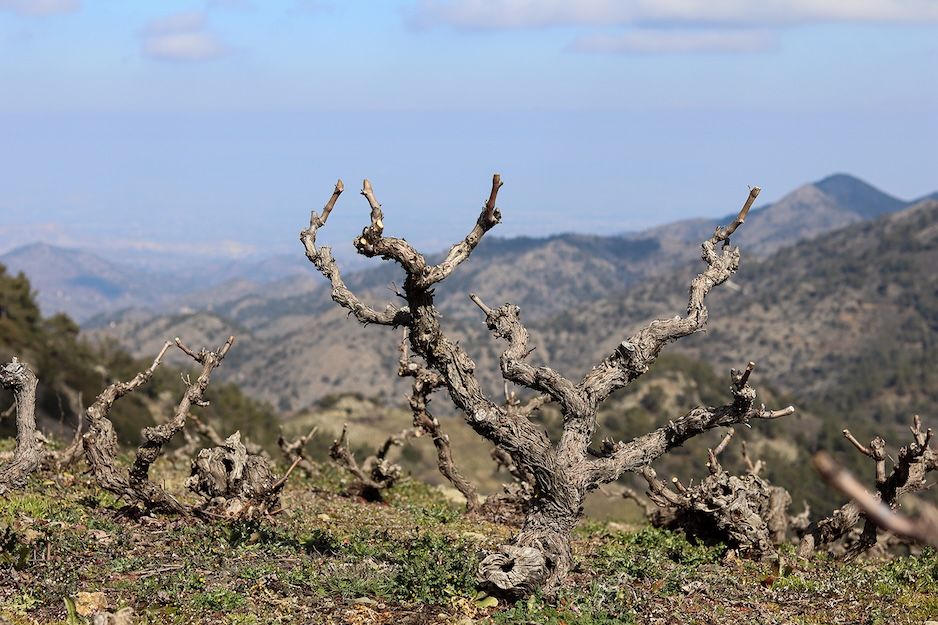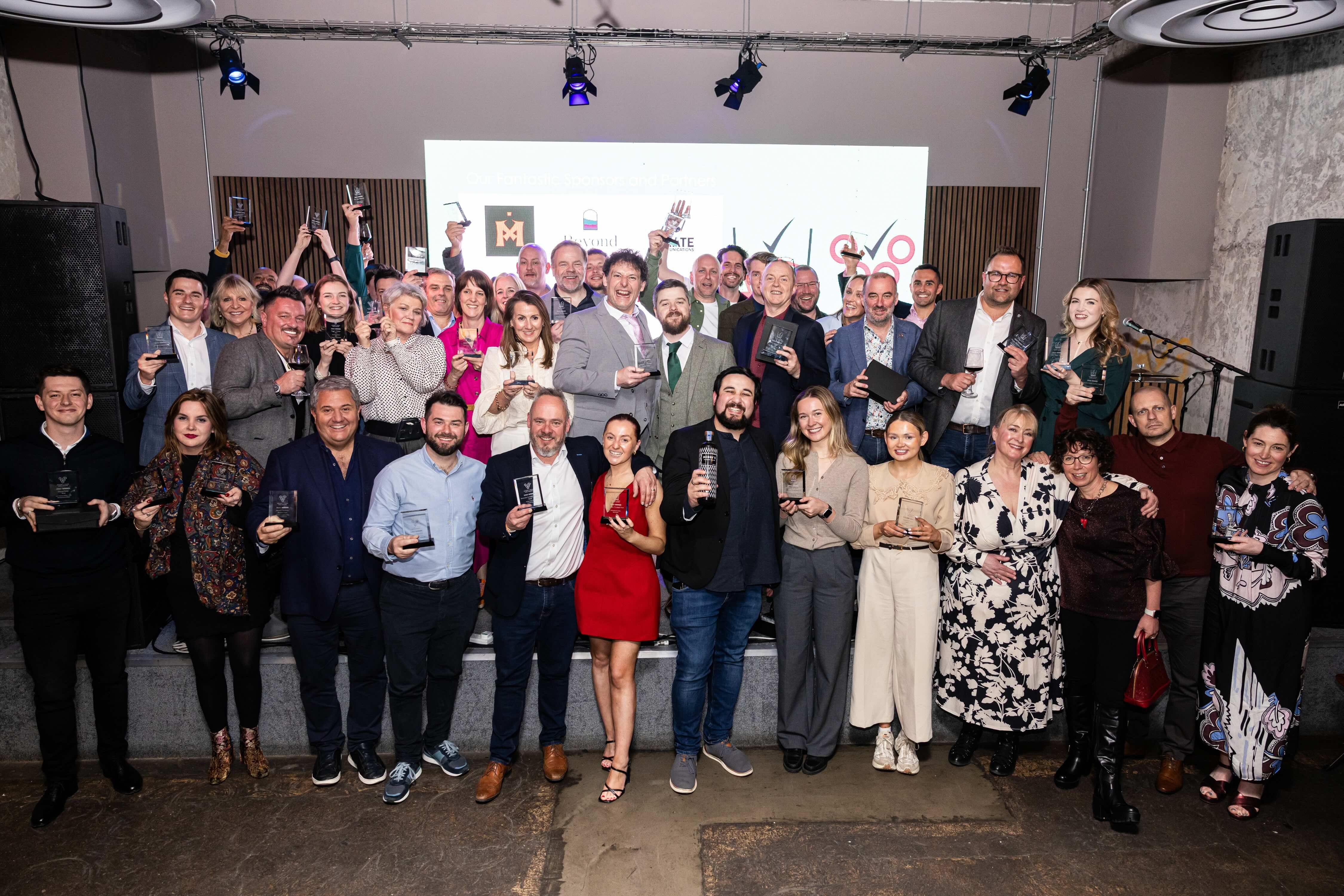“I also think that there is an argument here for vastly increased accessibility – whereas physical trips to any given location may only be possible once or twice a year in normal circumstances, the number of virtual press trips possible is likely to be much higher, with more attendees,” writes Lamb.
There has been endless discussion over recent weeks and months about the digital revolution that has occurred in pretty much every aspect of our day-to-day lives since the COVID-19 lockdown began. We’ve turned to platforms such as Zoom, Houseparty and Facetime for everything from family quiz nights to board meetings in what has generally been a resounding success story for video technology (although we all get a kick out of hearing tales of wayward children/pets/partners doing something horrifically embarrassing in the background).
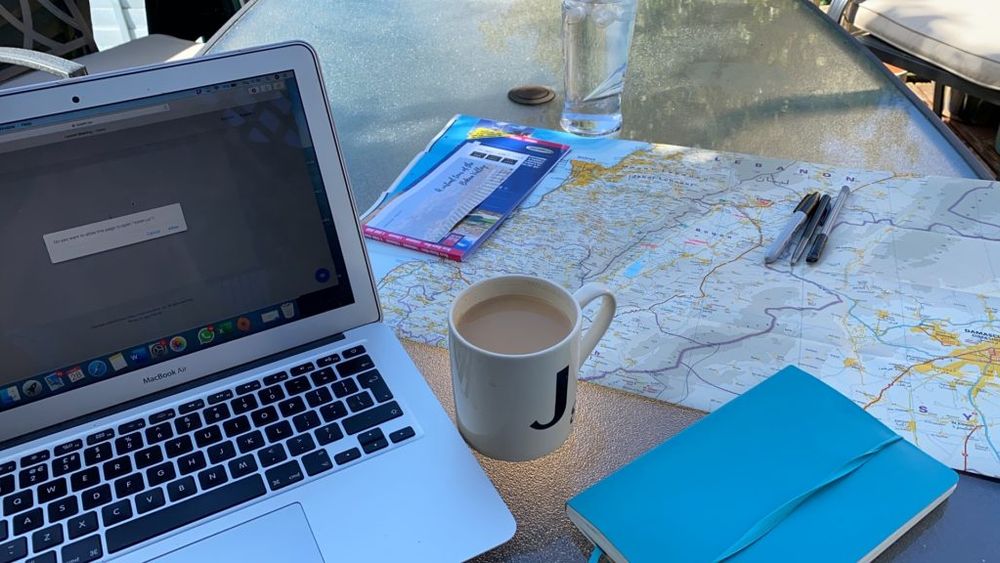
Meeting two of the top Lebanese wine producers, the country’s leading wine expert and touring vineyards and wineries still in your PJs with a cup of tea!
When it comes to wine, this avalanche of online communication has created a brave new world where wines, winemakers and wine regions have offered us a level of access and engagement which would have been hard to comprehend even six months ago. We’ve adapted in fine form; from masterclasses and Instagram Lives to winemaker interviews and tastings, the sheer amount of online content (much of it excellent – and if not excellent, then at the very least entertaining) that’s been created since that fateful day in mid-March is a testament to the adaptability and creativity of the industry.
However, one aspect of the wine trade that has been harder to translate onto our computer screens is the press trip. With the continuing uncertainty surrounding international travel for Brits (to quarantine or not to quarantine?) and despite gradual easing of the UK lockdown, it’s looking increasingly likely that journeys to many other parts of the world are going to be dreams rather than realities for much of the rest of 2020, and perhaps even longer. This presents a huge challenge for all the hundreds of wine regions around the world for whom visitors, both trade and consumer, are vitally important for the promotion and sale of their wines.
For many wine writers, journalists and members of the trade, press trips are possibly the most valuable learning experience going, as well as being one of the best perks of the job. Nothing beats being able to wander through the vines, meet the winemaker, taste wine a stone’s throw from where it was grown and get to grips with local cuisine and culture to gain true understanding of a region. Or so I thought …
First class treatment on a virtual press trip
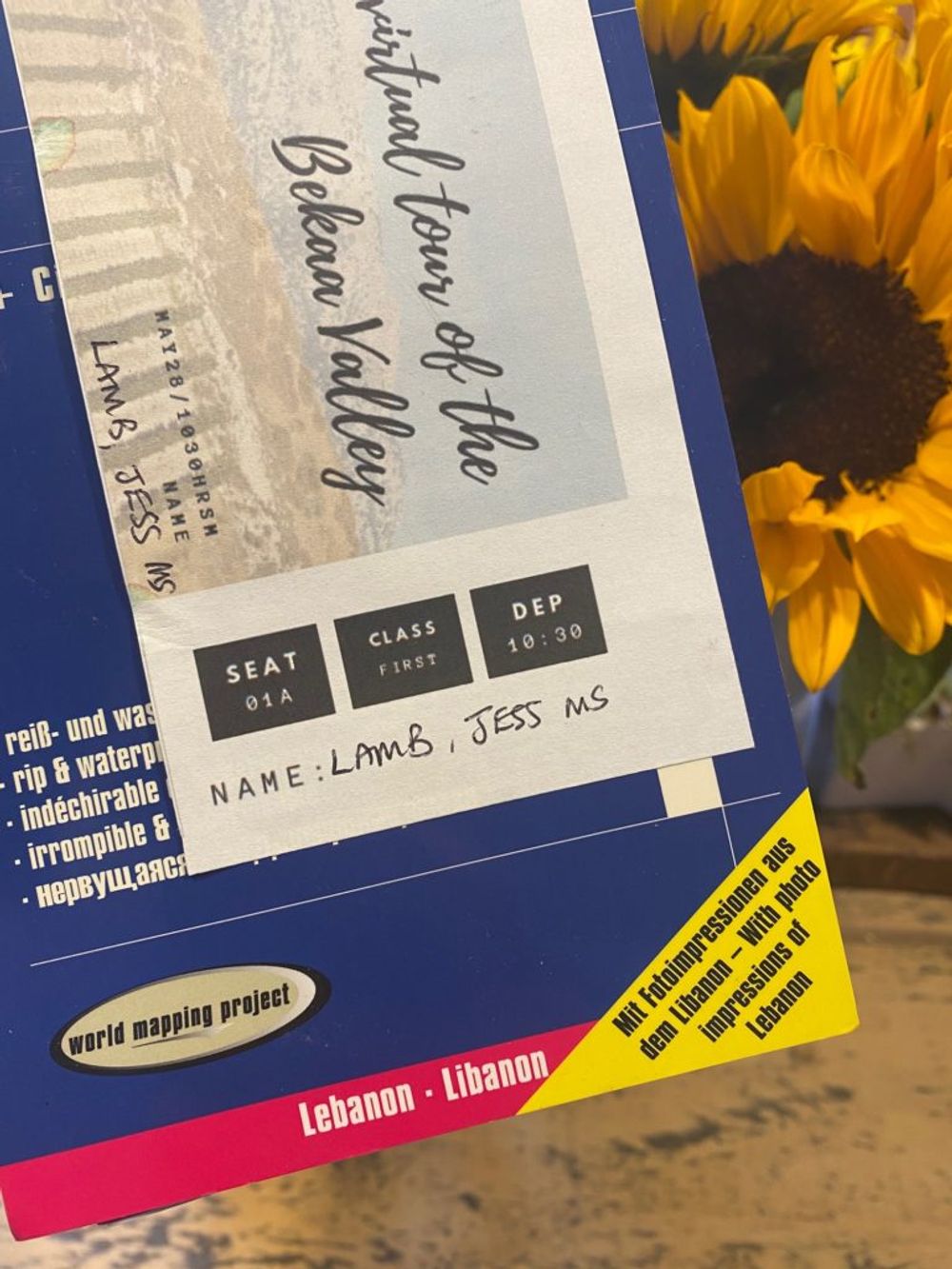
Having languished in the no-travel doldrums for what seemed like forever, it was a great pleasure to be invited to attend a virtual press trip to Lebanon by PR dream team Madeleine Waters and Rachel Davey in collaboration with two of the country’s best-known wineries, Château Ksara and Domaine des Tourelles.
Lebanon is one of the most exciting yet underrated entries on the list of the world’s wine producing regions. This tiny nation perched on the western end of the Mediterranean celebrates a vinous heritage dating back to 7000 BC which has endured and developed into a vibrant modern industry despite a long history of political upheaval and conflict. Indeed, Lebanon’s winemakers take great pride in their resilience and determination to succeed against what can sometimes seem rather overwhelming odds. ‘It is because it is difficult that it is only us who can do it!’ comments George Sara of Château Ksara, Lebanon’s oldest modern-day winery.
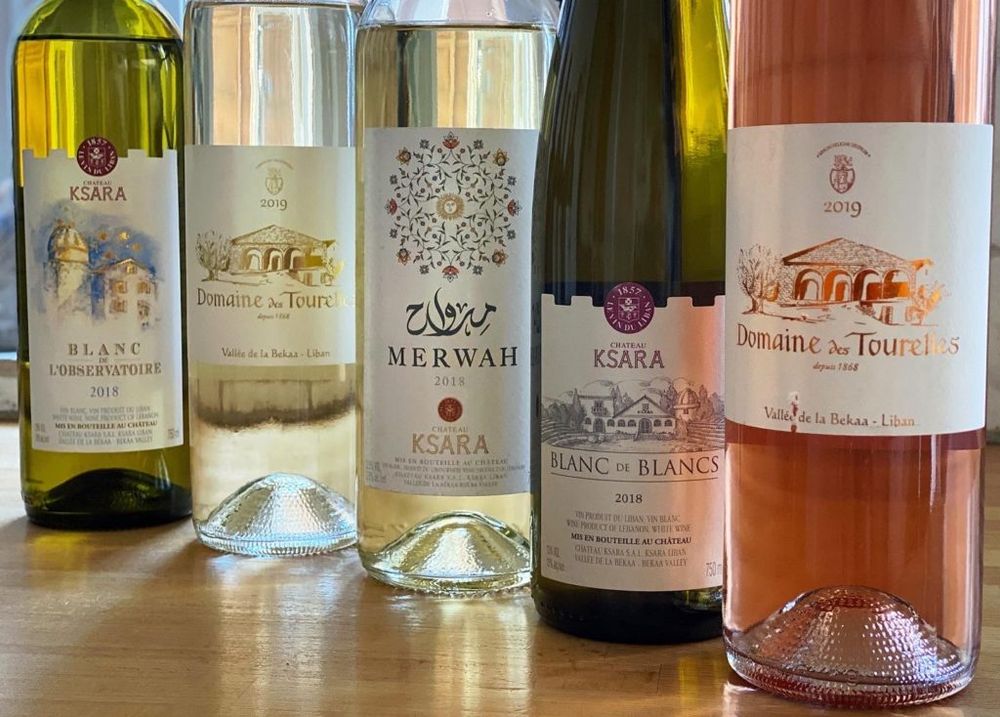
The tasting involved 10 wines – five whites/ rosés and five reds
The concept was simple, yet effective, consisting of morning and afternoon Zoom sessions with ‘guides’ Michael Karam, expert on Lebanese wine; Faouzi Issa, winemaker and co-owner of Domaine des Tourelles; and George Sara, co-owner of Château Ksara, followed by an extensive tasting of 10 wines from the two producers. Of course, the devil is in the detail, and Madeleine and Rachel had truly gone out of their way to ensure as authentic a Lebanese experience as possible. It was a lovely treat to receive, alongside the wines, a hamper overflowing with traditional Lebanese goodies such as pomegranate molasses and za’atar, a map of Lebanon annotated with the areas we would be ‘visiting’, and our very own boarding passes (first class, no less!). These unexpected and thoughtful touches immediately gave a touch of glamour and excitement, and I believe we all felt a pleasant rush of anticipation as we logged into Zoom!
A beautiful day in Lebanon
Admittedly, I love the process of air travel; bustling departures halls, the roar of engines, pre-flights drinks and that little flash of excitement as you step into the cabin and take your seat to be whisked away to somewhere exciting. However, there is a lot to be said for a leisurely morning in place of an airport dash, and it felt deliciously out-of-the-ordinary to be settling down in the garden with a cup of tea for an introduction to Lebanon with Michael Karam.
Karam is one of the world’s leading authorities on Lebanese wine – his new book, Tears of Bacchus; A History of Wine in the Arab World has been very well received and it was a great pleasure to accompany him on a journey through Lebanon’s many ages of wine. Lebanon has been ruled at one time or another by many of the world’s great civilisations from the Phoenicians to the Ottomans (and more recently, the French) and wine has had a similarly turbulent journey. From the glory days of the Phoenicians, the first people to export wine across the Mediterranean, Lebanese wine moved into a long period of dormancy under ‘dry’ Ottoman rule, and faced further upheaval between 1975 and 1990 as a result of a civil war which claimed the lives of around 200,000 and left the wine industry in a state of ‘suspended animation’ for nearly two decades.
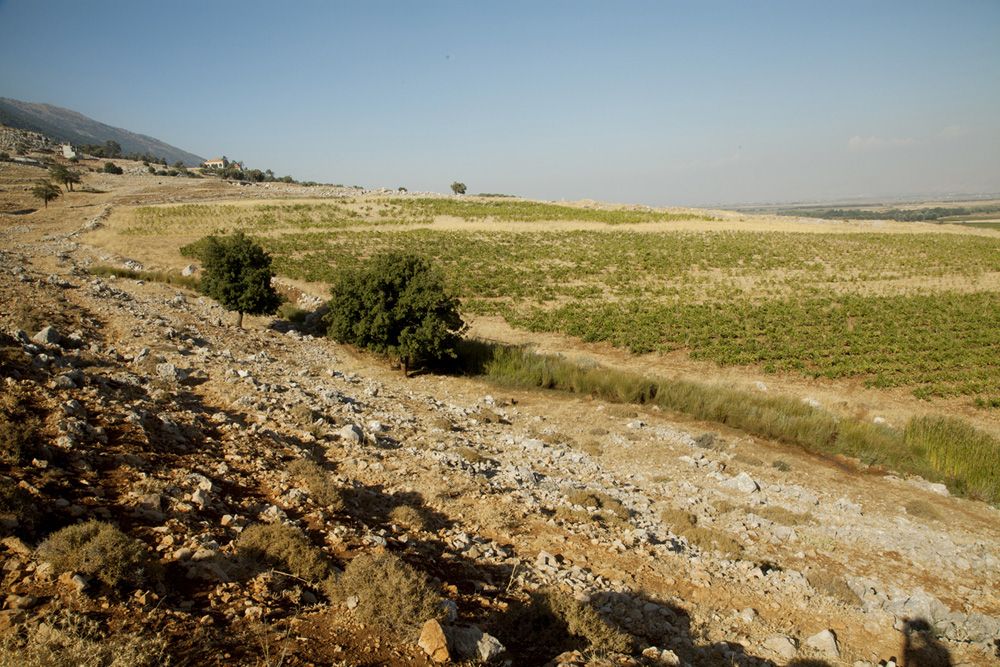
Some of Issa’s vineyards in the Bekaa Valley: quite apart from Covid-19, travel to Lebanon while it is currently undergoing crisis would be impossible
Perhaps the most transporting part of the day was the session with Faouzi Issa, winemaker and co-owner of Domaine de Tourelles. Issa cut his teeth at Domaine Rostaing and Châteaux Margaux before returning to the family business in 2008. Thanks to the incredible power of Zoom, we were lucky enough to encounter him for the first time amongst his vines at the heart of the Bekaa Valley. A near-flawless internet connection did great justice to Issa’s incredible surroundings, with breathtaking mountains plunging down into the rolling high-altitude vineyards – you could almost feel the warm sun and cooling winds that make the Bekaa Valley Lebanon’s premier growing region. “God gave us all the troubles,” remarks Issa, “but he also gave us all the beauty!” and even sat nearly 3,000 miles away in rural Lincolnshire, neither the romanticist nor the realist in me found it difficult to appreciate the truth in this statement.
A break for lunch was followed by an early afternoon session with the charismatic George Sara, co-owner of Château Ksara (George’s family acquired the property in the 1970s, with the similarity in names a happy stroke of providence!) on the challenges that Lebanon’s wine industry continues to face. Most recently, COVID-19 lockdown has affected Lebanon’s wine exports, which usually account for around 40% of the industry; and has made it almost impossible to access equipment such as corks, labels and glass bottles, another hard blow to a diminutive nation which is too small to produce most winemaking paraphernalia domestically. The coronavirus-related disruption is all occurring against the backdrop of far more fundamental state issues, with Lebanon currently facing its worst financial crisis since the civil war years. The economy is in freefall, currency is collapsing and protestors are taking to the streets in anger.
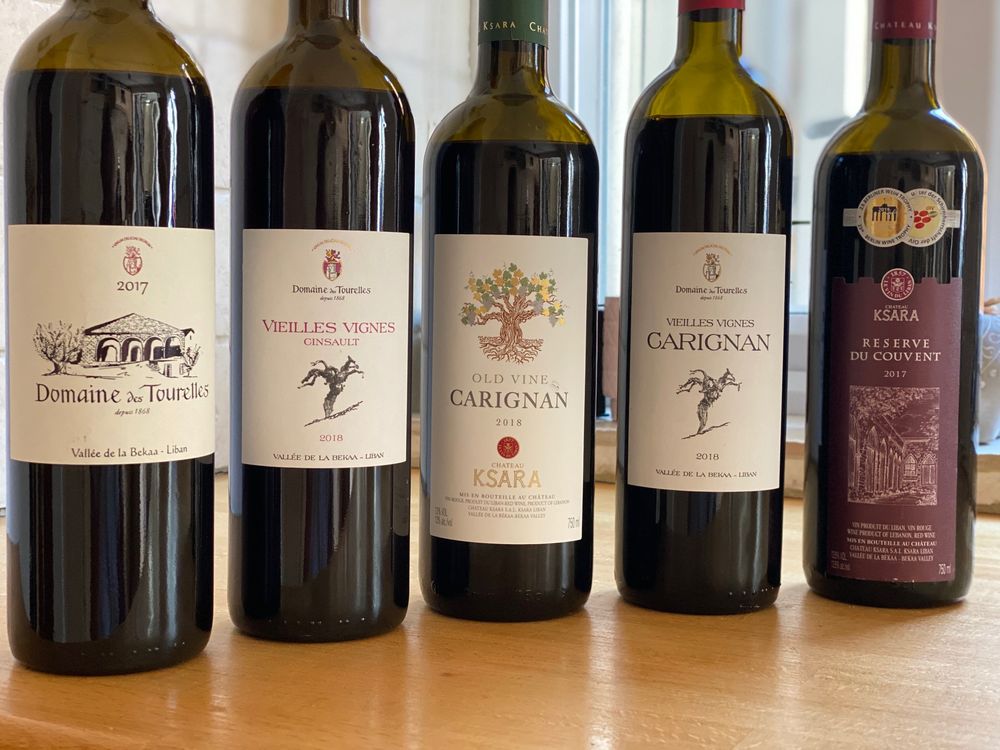
The tasting showed how Lebanese winemaking is moving away from lashings of new oak in favour of more sensitive, lower intervention approaches
However, as we taste through a selection of the best from Château Ksara and Domaine des Tourelles, guided by Issa and Sara, the mood is upbeat and optimistic. Despite the many and varied challenges of winemaking in Lebanon, this feels like an industry that is becoming ever more comfortable in its own skin.
“We have now re-found ourselves and our heritage, and we are very proud,” comments Sara. This rediscovery of self has involved embracing native grape varieties such as Merwah and Obeidi, moving away from lashings of new oak in favour of more sensitive, lower intervention approaches, and greater focus on complementing Lebanon’s excellent traditional cuisine.
The tasting over, we move gradually and regretfully towards a conclusion. Sara reminds us that the key to understanding Lebanon can be summed up in four words ‘high, old, beautiful and small!’, and we say goodbye with smiles, thank you’s, and applause. Time for a cup of tea in the garden!
The future is virtual!
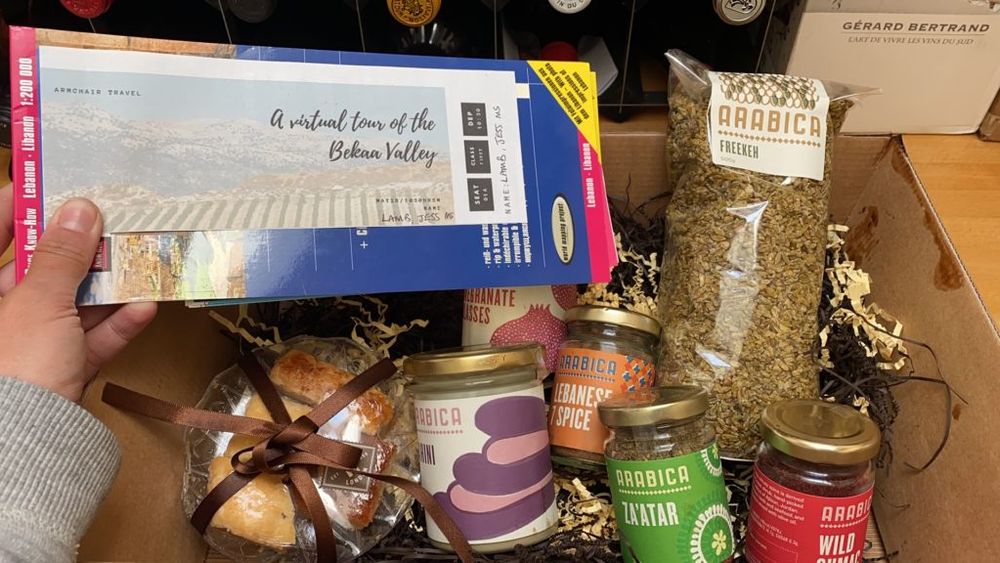
A goodie box helped the wines to be put into context as well as make the ‘passengers’ feel special
Any travel lover will tell you that no virtual experience can replace the real thing, and to an extent they are right. However, what this masterfully organised and thoroughly enjoyable ‘trip’ demonstrated is that it is absolutely possible to communicate the essence and energy of a wine region through our screens. This was undoubtedly one of my most uplifting days in lockdown, and there is definitely something to be said for being able to get to grips with what makes Lebanon special without having to slog down to Heathrow!
The benefits of a virtual wine trip are clear. Costs are lower for both hosts and attendees; the reduced travel and time commitments make it easier to participate during busy times; our carbon emissions are drastically reduced, with just a small footprint created from the delivery of samples and goodies; and if you really want, you can attend in your pyjama bottoms! I also think that there is an argument here for vastly increased accessibility – whereas physical trips to any given location may only be possible once or twice a year in normal circumstances, the number of virtual trips possible is likely to be much higher, with more attendees and thus a broader platform for promotion and education, which cannot possibly be a bad thing.
As far as we know, this comprehensive virtual press trip, complete with vineyard tours, regional insights, comprehensive tasting and local delicacies, was an industry trailblazer as the very first event of this kind to take place in the wine world. This alone is so very cool, but I also think that Lebanon was the perfect choice of destination, embodying as it does the enterprising, optimistic spirit that keeps the wine industry moving forward even in the most challenging of times. I think that Waters and Davey have demonstrated admirably what can be achieved with a little bit of innovation and inspiration, and hope to see many more of these events taking place in the future, even as lockdown eases and we find ourselves tentatively uttering words such as ‘normality’, or ‘pub’ and ‘open’ in the same sentence.
I’m not for one moment suggesting that the role of the physical press trip is defunct or outdated. I love them, as do the majority of the wine trade, and I honestly believe that there is no better way to learn and appreciate your subject than in situ. I’m itching to get back on a plane and get my feet on the ground somewhere new to begin an adventure. However, there is much that we can learn from the ideas and innovations of lockdown, and I hope that virtual press trips also become a far greater part of the landscape of the wine industry. These kinds of events offer the world’s wine regions a plethora of incredible opportunities for promotion and education, and whilst we should not replace travel entirely, there’s a lot to be said for being able to pop to Montepulciano or Marlborough and still manage to get the washing up done!
Jess Lamb is a freelance wine writer who left the world of international sales in 2017 to pursue a passion for wine discovered in the bars of New Zealand. She loves everything that is exciting, interesting, unusual and arcane about the world of wine, and when she is not writing can be reliably found studying for her WSET Diploma with a glass in one hand and a book in the other. Find out more at www.jesslamb.co.uk, and follow her wine adventures on Instagram and Twitter @jesslambwrites
